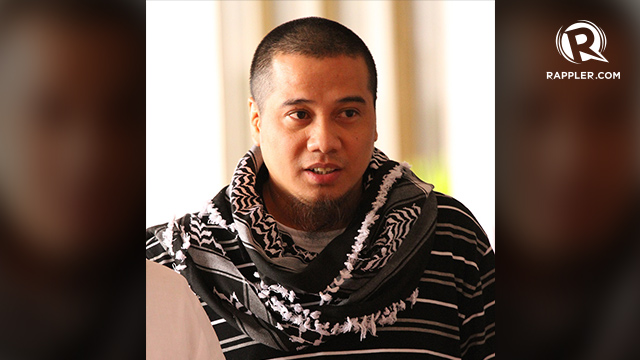SUMMARY
This is AI generated summarization, which may have errors. For context, always refer to the full article.

MANILA, Philippines – After 13 years in jail, a global and virtual campaign for blood money, and a new lease on life, Rodelio “Dondon” Lanuza is home at last.
The Filipino sentenced to death in Saudi Arabia due to murder arrived in the Philippines Thursday afternoon, September 19, the culmination of a 13-year ordeal.
Lanuza arrived at the Ninoy Aquino International Airport in Manila via an Etihad Flight from Abu Dhabi, United Arab Emirates. Upon his arrival, he went home to his residence in Sampaloc, Manila, and finally reunited with his family.
His homecoming comes after he was pardoned for killing a Saudi national in 2000. He claimed he acted in self-defense as the victim allegedly tried to sexually abuse him.
Saudi’s highest court affirmed his death penalty in 2001, but Lanuza was pardoned after the victim’s family asked for blood money.
The victim’s family received 3 million Saudi riyal in blood money. The Saudi government through King Abdullah shouldered 2.3 million of the amount (about P24.9 million) while the Philippine government and private groups and individuals were only able to raise 700,000 Saudi riyal or P7.5 million in February.
“This is a rare instance where the king of Saudi Arabia contributed millions of pesos to save someone’s life,” Vice President Jejomar Binay said in a statement on Wednesday.
Binay is the presidential adviser on overseas Filipino workers (OFWs).
“We would like to again extend our thanks to the king of Saudi Arabia, to private groups, and to our Embassy for their effort,” added Binay.
‘Many OFWs still need our help’
Lanuza’s is a story of how family and friends, philanthropists, and strangers can use traditional media, social media, and a global appeal to win freedom.
Lanuza’s relatives and friends used their offline and online networks to raise the blood money. They mounted a global appeal, tapping groups, individuals, and philanthropists like Filipino-American businesswoman Loida Nicolas Lewis. They even put up a website www.helpdondon.com.
In an interview with the Inquirer last year, Lewis said Lanuza’s story and mother moved her to help him.
“As a lawyer, when I read the brief of his lawyer, it [struck] my sense of justice. Self-defense is a valid defense for acquittal and yet he was convicted for premeditated murder. He should have been acquitted…. We Filipinos have to help him because he is our son, our brother, our cousin,” Lewis said.
In a letter posted on www.helpdondon.com, Lanuza thanked everyone who worked for his release, and talked about his new life.
“Being behind bars has opened my eyes to the value of freedom and life. My past has taught me that taking things for granted in the future is no longer an option for me. It has also enlightened me to the truth that I have a higher calling and that is, to make a difference and be of service to God and my fellowmen,” Lanuza said.
He added: “Many thanks for celebrating my freedom with me, but let us not forget that there is still a lot of work to be done. Many of our OFWs still need our help.”
“I fervently hope and pray that this is not the end, instead, may this be a beginning and an opportunity to help other OFWs in distress.” – Rappler.com
Add a comment
How does this make you feel?
There are no comments yet. Add your comment to start the conversation.